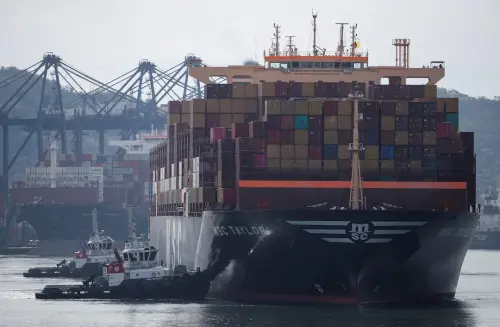The broad foreign aid freeze instigated by U.S. President Donald Trump has halted a United Nations program in Mexico designed to prevent fentanyl chemicals from being acquired by the country's drug cartels. This pause on aid has also disrupted various U.S. counternarcotics operations in Mexico, including a program meant to enhance cargo screening at the Port of Manzanillo. The initiative aimed to assist Mexico’s Navy in improving inspection practices at the port, with plans to extend these efforts to two other seaports in the country. The funding suspension has prevented the expansion of the program and the provision of additional screening equipment and training. The aid freeze has also affected other anti-narcotics initiatives in Mexico, such as the training of Mexican authorities and donations of drug-sniffing canines.
The pause in funding from the U.S. government has raised concerns about its potential impacts on addressing the fentanyl crisis and drug overdose epidemic in the U.S. The freezing of funds has led to the suspension of several crucial anti-narcotics programs in Mexico, jeopardizing efforts to dismantle drug production and trafficking networks.
Despite investments in training and equipment at ports like Manzanillo, the trafficking of drug-making substances remains a significant challenge. The expansion of the cargo program to other key ports in Mexico, like Veracruz and Lázaro Cárdenas, is crucial for enhancing screening efforts and combating drug smuggling through various routes. The U.N. program's potential extension to airports, including Mexico City's Benito Juárez airport, is seen as vital in combating the smuggling of precursor chemicals by air.
The current geopolitical landscape suggests a shift in U.S.-Mexico security dynamics, with implications for the bilateral relationship and efforts to combat drug trafficking. The recent designation of Mexican cartels as foreign terrorist organizations and discussions about potential military interventions indicate evolving strategies in addressing the drug trade. Such developments raise questions about the future of security cooperation between the two nations and underscore the complexities of combating transnational organized crime.
